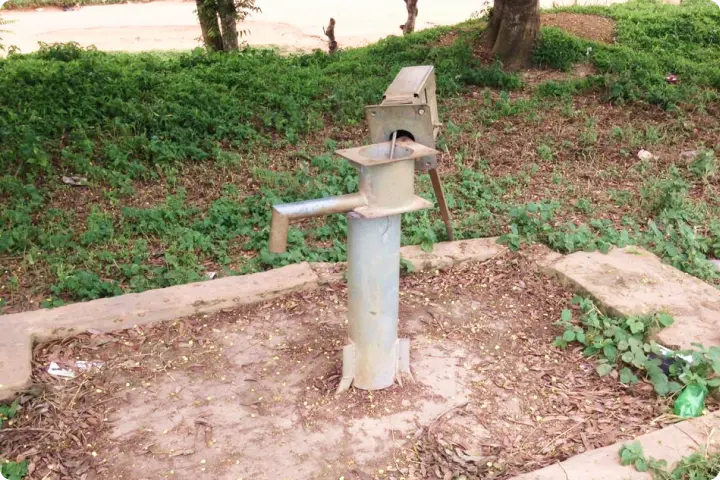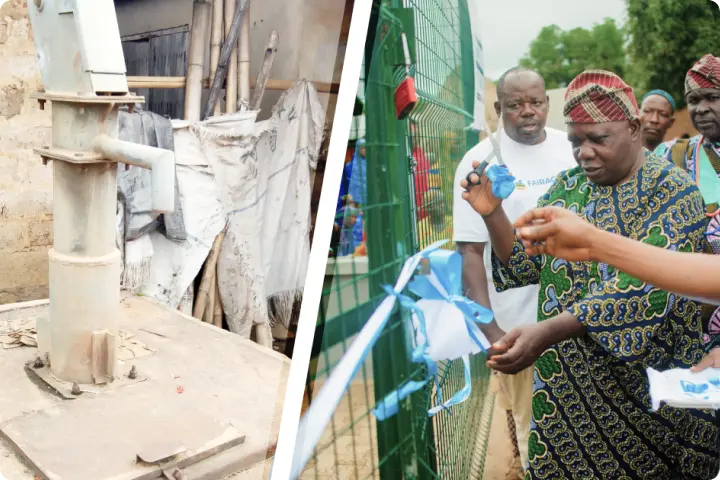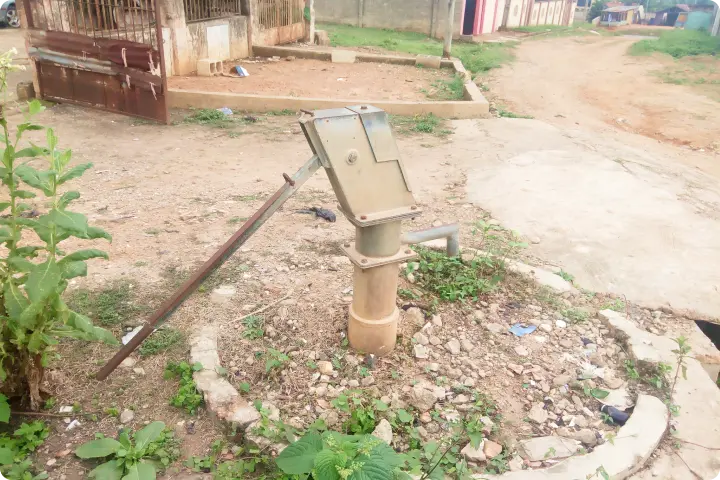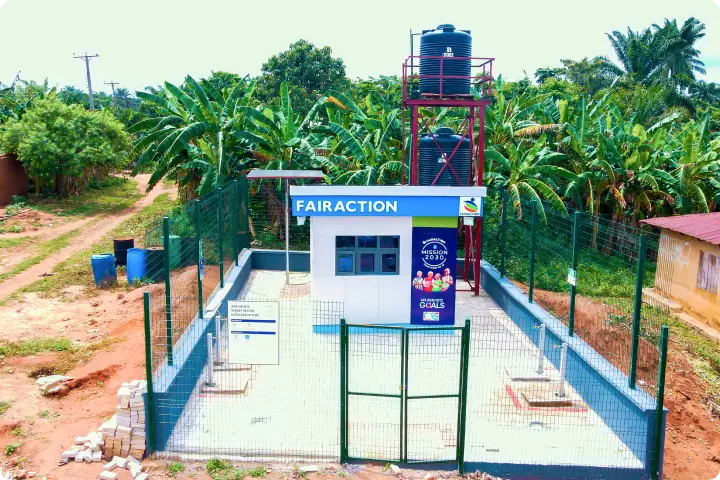The Problem with Hand Pumps: Why We Don’t Install Them
“Safe water is not just about access. It's about quality, sustainability, and dignity.”
Across rural communities in Nigeria and many parts of Sub-Saharan Africa, hand pumps have long been seen as a go-to solution for delivering clean water. They're low-cost, easy to install, and politically attractive.
But after years of field experience and scientific assessments, Fairaction - an Australian water charity, has made the deliberate choice not to install hand pumps in the communities we serve.
Why? Because hand pumps are no longer fit for purpose – not in the way they're currently being deployed. Here's why we believe it’s time to rethink this widespread solution.

The Hand Pump Myth: Access ≠ Safety
For decades, hand pumps have been considered the symbol of rural water access. They're frequently used to meet water-related development goals, especially Sustainable Water Solutions like Sustainable Development Goal 6 (SDG 6): Clean Water and Sanitation for All.
But while hand pumps may improve access, they often fail to guarantee safety – and that’s where the problem begins.
Our Field Findings
Fairaction, a committed water charity organization in Australia, conducted water quality assessments on community boreholes across four Nigerian states. Many of these boreholes were built in good faith, funded by government projects, NGOs, and water donation organizations.
88.2% of sampled boreholes failed to meet the Nigeria Industrial Standard for Drinking Water (NIS 554:2015)
58.8% of the water sources were contaminated with dangerous levels of E. coli, iron, fluoride, manganese, or sulphate
These contaminants – both microbial and geogenic are invisible to the eye but harmful to health. And yet, they flow freely from hand pump systems installed under the banner of "safe water."

Why Hand Pumps Are Failing Communities?
While hand pumps solve the problem of access, they come with several blind spots:
1. No Built-In Water Treatment
Groundwater isn’t always safe. It can be contaminated by:
Fecal matter
Naturally occurring heavy metals
Industrial waste or agricultural runoff
Yet most hand pump systems lack any form of treatment, leaving communities exposed and undermining long-term water sustainability.
2. No Real-Time Monitoring
Once a borehole is commissioned, there’s rarely a smart water management system in place to monitor water quality over time. If contamination creeps in (and it often does), there's no warning until illness appears.
3. No Maintenance or Repair Plan
Studies show that more than 30–50% of hand pumps stop working within 2 years due to:
Poor installation
Lack of maintenance funding
Community fatigue from multiple failed interventions
These systems become abandoned – monuments of good intentions gone wrong.
4. No Lifecycle Costing
Studies show that more than 30–50% of hand pumps stop working within 2 years due to:
Hand pumps are attractive because they’re cheap. But without factoring in ongoing costs (repairs, quality testing, spare parts), they’re not cost-effective in the long run for water donation charities or local governments.
What We Do Instead: The Fairaction Model
At Fairaction, we do not install infrastructure that cannot guarantee safe, reliable, and dignified water access.
Instead, we implement Smart Water Kiosks – a holistic system built with science, sustainability, and community dignity at its core. These kiosks are part of our broader commitment to a sustainable water project in Nigeria.
Features of Our Water Kiosks
Component | Function |
Chlorine & Alum Dosing | Disinfects microbes, coagulates particles |
Sand Filtration | Removes turbidity and sediments |
Activated Carbon | Enhances taste and removes organics |
Iron Removal Resin | Eliminates iron and manganese |
Ion Exchange Resin | RSoftens hard water |
Micron Filters | Final-stage purification |
Hygienic Metering Taps | Prevents recontamination |
Smart Monitoring | Real-time water quality and usage tracking |
These systems aren’t theoretical. They’re already working in multiple locations across Nigeria, with:
97.5% system uptime
100% compliance with NIS drinking water standards
Community ownership and maintenance are built in
This is Water Charity Nigeria done right—proof that technology, community, and vision can align.
Rethinking the “Cheap” Solution
It’s time to face a hard truth: cheap water projects are often the most expensive in the long run.
The Hidden Costs of Hand Pumps
Health costs from diarrhea, fluorosis, and metal poisoning
Loss of community trust in development interventions
Environmental degradation from unsupervised drilling
Redundant aid from repeated borehole rehabilitation
Investing in water systems that don’t treat or monitor the water is like giving someone a spoonful of medicine in a dirty cup.

A Call to Funders, Governments, and NGOs
We urge donors, water donation organizations, and governments to move beyond token access metrics and invest in true impact models like smart water kiosks in Nigeria.
Before funding a clean water charity in Australia or abroad, ask:
Is this system built to deliver safe and sustainable water solutions, not just access?
Are there provisions for treatment, monitoring, and maintenance?
Can it still function and stay compliant 5–10 years from now?
If the answer is no, the solution may do more harm than good.
Moving from Symbolism to Substance
Hand pumps are often celebrated with ribbon-cutting ceremonies, community dances, and photo ops. But we’ve seen too many of these same pumps stand abandoned, broken, or contaminated just a few months later.
Real change means moving from symbolism to substance, from basic access to smart water management systems that ensure safety and longevity.
Let’s Build Better, Together
At Fairaction, we’ve made the difficult but necessary pivot away from the traditional hand pump model. We believe the future of water sustainability in rural Africa lies in:
Science-based solutions
Community-driven operations
Quality assurance at every drop
It’s not enough to bring water closer. It must also be safe, trusted, and sustained.
Let’s stop funding solutions that fail quietly and start investing in systems that stand the test of time because real dignity is drinking water without fear. Water is life, but only when it’s safe.